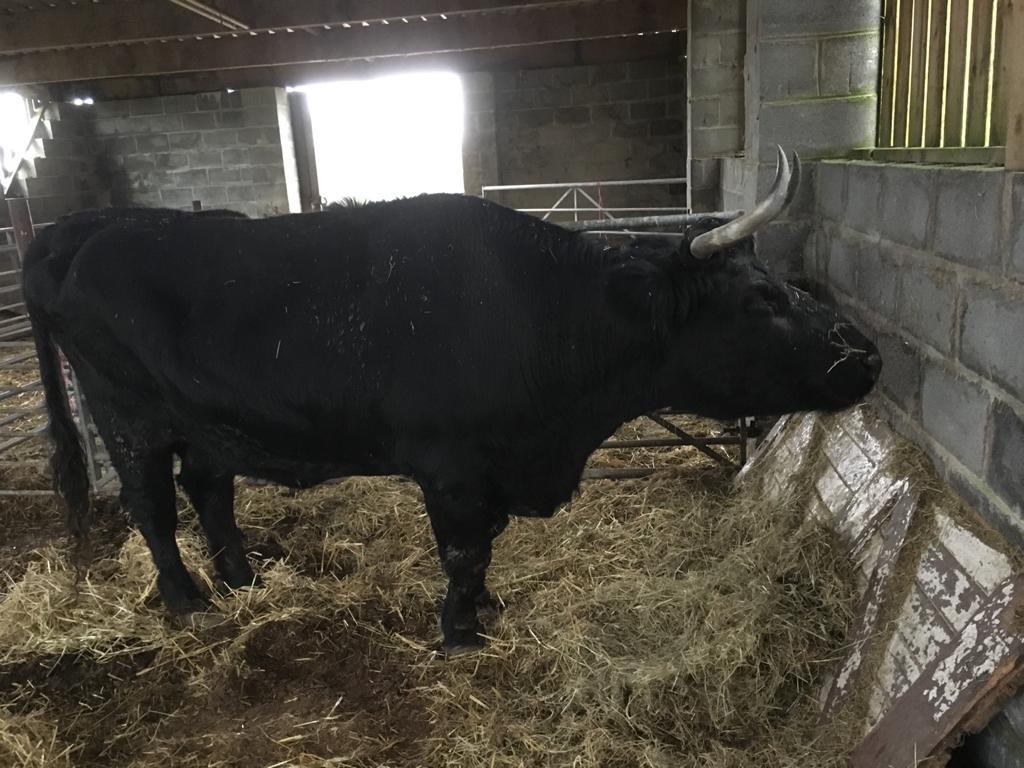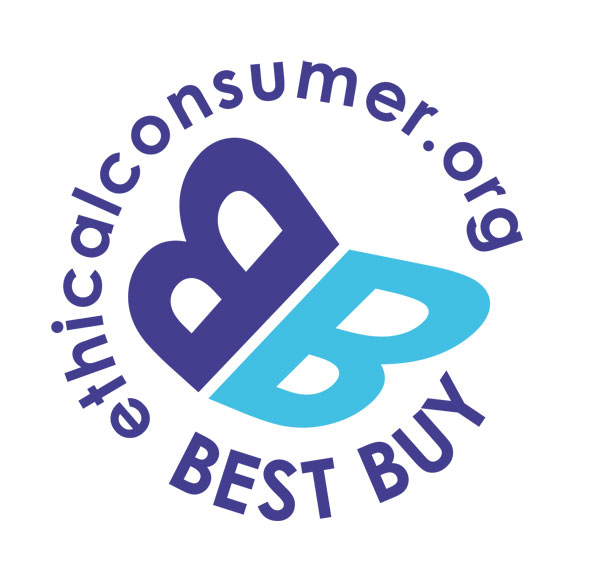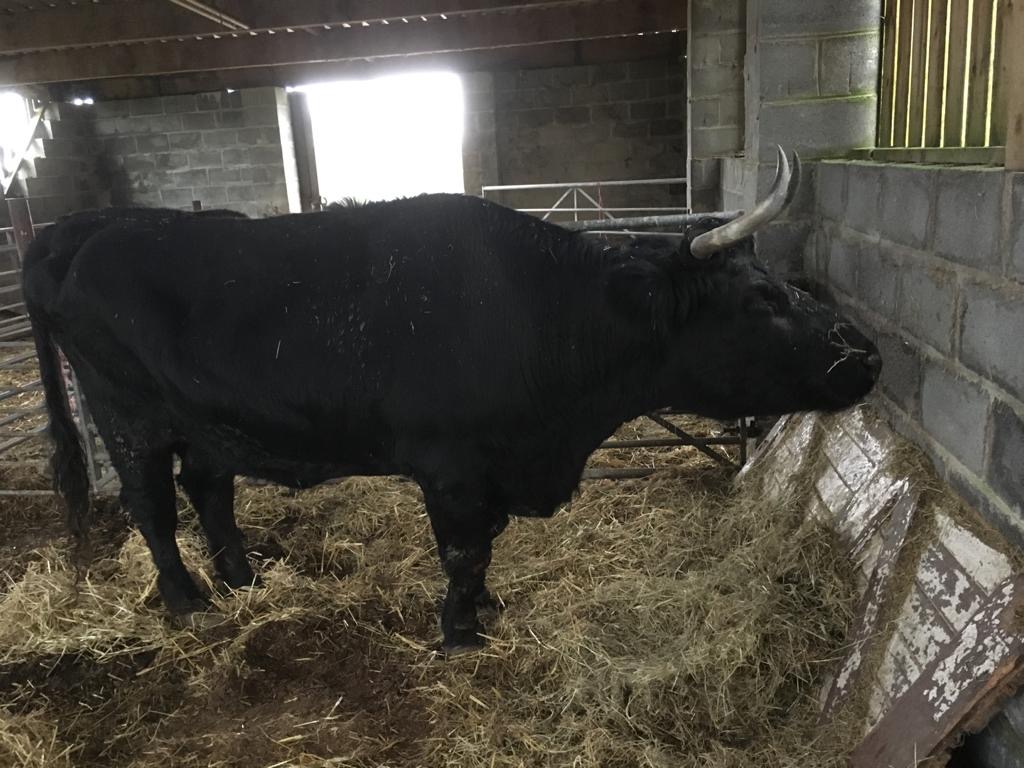![]() 100% Vegan
100% Vegan
![]() Established in 1993
Established in 1993
![]() Delivery Worldwide
Delivery Worldwide
![]() Peta Approved Vegan
Peta Approved Vegan
Recent Posts
- Buckland Boots being put to the test
- 30 Years
- Here’s a welcome headline on the BBC Sports pages;
- Helping Tibetan refugees build a bright future
- Helping Foxes in the South East of England
- The latest news from ethicalWARES
- Street Dog Care - £400 payment made
- OurLizzy
- ethicalWARES' Guide To Recycling & Upcycling
- Vegan design: 4 tips for transitioning to cruelty-free furniture in your home
Happy birthday Aunt Dotty! A 20 year old cow rescued from the dairy industry

Who is Aunt Dotty?
Our magnificent Aunt Dotty was born 20 years ago on 24th January 2000.
She came to live with us when we heard she was due to be sent to the slaughterhouse as she could no longer produce the calves she needed to make the milk her previous ‘owners’ wanted. Such is the lot of the average dairy cow. We couldn’t allow this to happen so here she came, 12 years ago now.
Age has caught up with her this year and she has just got over a health scare which we didn’t think she would survive – but she did, bless her! We hope she’ll be celebrating many more birthdays with us for a long time to come.
Happy Birthday Aunt Dotty!
Please read on for more information about the cruel dairy and leather industries.
The Dairy Industry
In order for the dairy industry to continue operations, cows are required to continuously provide their milk. This milk is then processed and sold off to companies where it is used to create thousands of different consumer goods such as bottles of milk, cheese and yoghurts.
For a cow to keep on providing her milk she must go through a cycle of pregnancy and giving birth. To do this, farmers artificially inseminate the cows so that they can fall pregnant. There are a number of serious ethical concerns surrounding this cycle in the dairy industry.
Captivity
Cows in the dairy industry are born into captivity and spend most of their lives feeding and being milked.
Many cows caught up within the intensive dairy industry may never set foot onto a beautiful green field as so often portrayed in many of the dairy marketing campaigns we see on TV.
During their captivity, they spend most of their lives immobilised, feeding and having their milk taken from them. This is no life for any animal.
Many cows never get to perform any of their natural behaviours or instincts. Life on a dairy farm is miserable for a cow.
Birth
When a cow gives birth, her calves are usually taken away within just 24 hours of their lives.
Should the cow give birth to a male, he could be slaughtered within just a few hours or sold off to be reared for veal.
The female calves are moved to their own confined housing unit away from heir mother and to be fed formula and prepared for the same awful cycle as their mother.
This experience is highly distressing for the animals with many mother cows crying out for days or even weeks after they have had their calves taken away from them.
A dairy cow will have to go through this process 4 or 5 times until she is no longer able to give birth anymore. At this point, the cow is considered ‘spent’ and she is sold to be slaughtered so that her body can be butchered and sold as meat.
Infection
The milk yield for dairy cows on an intensive farm is unnaturally high which causes over a third of all dairy cows to suffer from mastitis. This is a nasty and incredibly painful infection for the cow.
If the infection worsens the cow is usually culled as a result. In fact, mastitis is the number one cause of premature culling in the dairy industry.
Life Expectancy
Like Aunt Dotty, a cow free from exploitation may live to the age of 20-25 years. In the dairy industry, the average lifespan of a cow is just 7-8 years, at which time they are slaughtered.
During their short unnatural lifespan, they spend the majority of their lives pregnant and being milked continuously.
Even in the UK, a country with one of the highest animal welfare standards in the world, cows are still exploited, separated from their mothers, used and discarded when they can no longer produce milk.
The Leather Industry
Once a cow has been slaughtered for the meat industry, her skin is sent off to the leather industry to be made into one of the thousands of common leather products such as handbags, belts, wallets and shoes.
Dairy cows might spend 7-8 years of their lives in confinement, giving birth multiple times, being milked continuously only to be slaughtered for meat and her skin then sent to a leather production facility.
This lifetime of exploitation and abuse is rarely mentioned when discussing the ethical implications of leather. The discussion mostly surrounds the issue of pollution created by the manufacturing of leather goods through its intensive use of natural resources and fossil fuels.
Some animals are purely bred just for their leather, as seen in the fur industry, which has almost been completely ostracised by the fashion world and general population.
There is Another Way
Veganism has gained serious momentum over the last few years with more people than ever committing to a vegan lifestyle.
This rise in demand has been heard by companies all over the world, creating waves of new alternative vegan products for both dairy and leather.
The vegan dairy industry has seen a huge number of new products come to market with tremendous success, most notably a wide range of plant milks, which can now even be bought in budget supermarkets such as Aldi and Lidl.
Most major supermarkets now sell plenty of these vegan dairy products including entire vegan ranges of milk, cheese, yoghurts and ice cream.
The vegan leather industry is now seeing a huge rise in popularity too. Thanks to the recent surge of veganism, a bit of money and a splash of innovation, there are some remarkable vegan leather products on the market that are produced using mostly natural or recycled materials.
Non-leather wallets, non-leather handbags and vegan-friendly boots are the most popular products currently being produced. Here at ethicalWARES we’re proud to have been selling non-leather, cruelty free footwear and accessories since 1993.
Vegan leathers currently on the market are mostly made using eco-materials such as pineapple leaves, cork, apple peels, recycled plastic and paper and other waste materials.
It’s been predicted that the vegan leather industry could be worth as much as $85 billion by 2025.
The Bottom Line
The continued rise of veganism is inspiring new innovation which is helping to create wonderful alternative products that are not only cruelty-free but less resource-intensive and friendlier to the environment.
It’s clear that not only vegans but a lot of the general public also want to see more cruelty-free products to replace those that are a product animal exploitation.
As the world slowly wakes up to the exploitation and mistreatment of animals in the production of their everyday foods and consumer goods, it’s inevitable that we will continue to see new vegan alternative products being launched.
Great news for cows all over the world, as well as for us consumers!
We hope that you’ve found this article informative, and if you haven’t yet ditched dairy or leather goods, that you will seriously consider doing so. If you need some ideas for new non-leather shoes, belts or accessories, check out the ethicalWARES online shop for inspiration!


